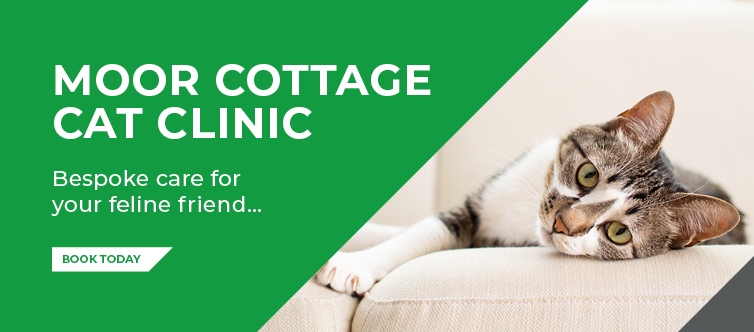Cats can make amazing pets and deciding to bring a kitten or cat into your family is an exciting time. Before you commit to bringing your feline friend home, it is important to consider the following:
Behaviour and personality
What are you looking for in a cat? Would you prefer a cuddly cat that is happiest on your lap, or a more independent cat? Each cat (and breed) has their own personality, and their early experiences will determine how they interact with people. Be sure to spend time with your kitten/cat before deciding to home them, in order to get to know their personality and to be sure they will fit in with your expectations.
Environment
Will your cat spend time outside? If so, be sure that the local area is free from busy/main roads which helps prevent injury. It is possible to ‘cat-proof’ your garden if you wish for them to spend time in a controlled outdoor environment without escaping into the local area. When it comes to letting your cat outside, be sure they are vaccinated, neutered and microchipped before being allowed out and introduce them to it gradually over a period of 2 weeks.
If your cat will be kept indoors, ensure the house is ‘cat-proofed’ to prevent risk of escape. Indoor cats also require more stimulation and exercise as in the wild, cats would spend many hours roaming and hunting – so it is important to enrich their environment with toys, games, activity feeders and puzzles to keep them entertained.
Provide comfortable bedding for your kitten/cat – cats generally prefer to be in enclosed areas and/or in high areas, with several places to hide. Using a cat tower or placing bedding up on a shelf, or using ‘igloo’ type bedding that they can hide in, is ideal to meet their needs.
Nutrition
Cats are obligate carnivores – this means they cannot survive on a vegetarian diet and must receive meat. It is important to feed your cat/kitten a good quality kitten food until they are 6 months old, before moving them on to an adult diet. Cats in the wild will hunt for food, but by using puzzle feeders and hiding their biscuits around the house you can help keep your cat entertained. Cats prefer to keep their food away from their water source and their litter tray, so bear this in mind when designing their environment.
Toileting
Most cats/kittens will be litter trained by the time they arrive with you. There are several types of cat litter available – clay, wood pellets, silicone granules, paper pellets – experiment with different types until you find one your pet likes. Try not to use one that is too dusty or scented, so that it does not irritate your kitten/cat’s eyes/nose.
Socialisation
Kittens learn a great deal at a very young age. Their socialisation period begins at 4-5 weeks and generally lasts until they are around 16 weeks. During this time, a kitten learns what is safe and what is scary – so it’s important to get your kitten used to different people, noises, objects etc. Use this time to teach them as much as possible; this will help avoid them being fearful in adult life.
Healthcare
All cats require vaccinations each year to protect them against infectious disease. We currently vaccinate against feline leukaemia virus, infectious enteritis (similar to parvovirus in dogs), calicivirus and herpes virus (two causes of infectious cat flu). Your kitten/cat will require two injections given three weeks apart, and then boosters each year to maintain their protection.
All cats should be neutered at 4-6 months to prevent urine spraying, unwanted pregnancy, seasonal behaviour, roaming and spread of infectious disease (such as feline immunodeficiency virus which is spread by fighting male cats).
All cats should be microchipped around the time of neutering (or earlier if they are going outside) to ensure they can be returned to you in the event of a loss or escape! The microchip is a small electronic chip placed under the skin, usually between the shoulder blades. It has a unique identification number that is registered to that animal.
In addition, cats should be protected against parasites such as fleas, tapeworm and roundworm – flea treatment is required monthly, and worming every quarter for the duration of the cat’s life.
Insurance
Ideally pet insurance is required to help cover the costs of essential treatment should your cat become ill or injured. As well as covering your vet bills, insurance provides you with peace of mind. A pet becoming ill or injured can be a distressing time and we would recommend a covered for life pet insurance policy, to ensure that your cat is covered for lifelong treatment should it be needed.
Grooming
Cats require regular grooming. Long-haired cats particularly need to be brushed daily to prevent the build-up of matted fur. It is also advisable to handle their paws regularly, examine their claws, ears and eyes and clean when necessary – this will accustom them to having these areas handled, which reduces their stress levels should they need a veterinary exam.
And finally
Enjoy your new kitten/cat! Cats make very entertaining and rewarding pets. There will be good times and difficult times, but these will be worth if for all of the love, fun and playfulness your new friend will bring!















